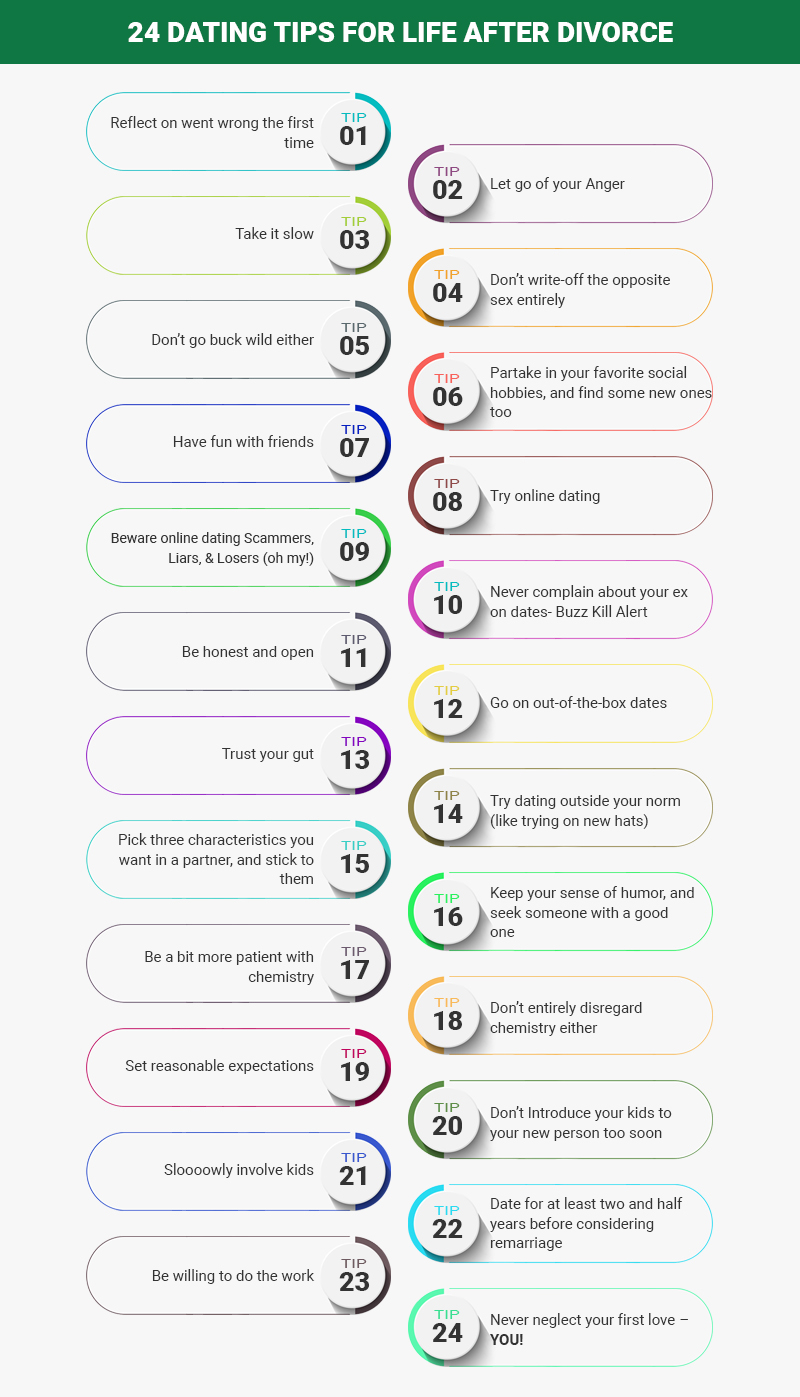
Understanding Divorce and Dating
Overview of Divorce Statistics
Divorce is a prevalent aspect of modern relationships, with statistics revealing some striking facts. For instance, nearly 50% of marriages in the United States end in divorce. This statistic highlights the significant number of individuals navigating singlehood after a dissolution of marriage, often making them hesitant about entering new relationships.
Challenges Faced by Recently Divorced Singles
Navigating the dating landscape post-divorce can be daunting. Many recently divorced individuals face several challenges, including:
- Emotional Turmoil: The emotional aftermath of a divorce can leave individuals feeling vulnerable and confused about their self-identity.
- Trust Issues: Past disappointments can lead to difficulty in trusting new partners.
- Fear of Rejection: Concerns about being judged or rejected during the dating process can deter individuals from stepping out of their comfort zones.
- Parenting Concerns: For those with children, the dynamics of blending families can complicate new relationships.
Understanding these challenges is crucial for recently divorced singles as they embark on their journey to date again.

Self-Reflection and Healing
Importance of Self-Reflection After Divorce
Engaging in self-reflection post-divorce is vital for personal growth. It allows individuals to assess what went wrong in their previous relationship, helping them avoid similar mistakes in the future. For example, someone may realize they often prioritized their partner’s needs over their own, leading to resentment.
Strategies for Healing Emotionally
To facilitate emotional healing, consider these strategies:
- Journaling: Writing down feelings can provide clarity and promote healing.
- Seeking Support: Connecting with trusted friends or joining support groups can provide comfort.
- Therapy: Professional guidance can offer tailored strategies for overcoming emotional hurdles.
Taking these steps not only aids in healing but also sets a foundation for healthier future relationships.

Building Confidence and Self-Worth
Boosting Self-Confidence Post-Divorce
After a divorce, rebuilding self-confidence is essential for moving forward. It’s common for individuals to feel diminished after the end of a relationship, but there are ways to reclaim that confidence.
- Set Small Goals: Accomplishing manageable tasks can lead to a sense of achievement.
- Practice Self-Care: Prioritizing physical health, such as exercise and nutrition, can enhance mood and confidence.
One woman, after her divorce, started painting again, which not only restored her creativity but also bolstered her self-esteem.
Self-Worth Exercises for Divorced Singles
Engaging in self-worth exercises can further nurture one’s emotional health:
- Affirmation Mantras: Daily affirmations can help replace negative thoughts.
- Gratitude Journaling: Listing things one is grateful for can shift focus from loss to appreciation.
By incorporating these techniques, divorced singles can begin to foster a more positive self-image, setting the stage for healthier relationships in the future.

Red Flags to Watch Out For
Identifying Warning Signs in a New Relationship
As divorced singles dive back into dating, being aware of red flags in new relationships is crucial. Some common warning signs include:
- Excessive Jealousy: This could indicate insecurity, which can lead to controlling behavior.
- Poor Communication: If a partner struggles to express their feelings or avoids difficult conversations, it can hinder a healthy relationship.
For example, Sarah noticed her new partner’s possessive nature early on, which echoed the issues she faced in her marriage, prompting her to reconsider the relationship.
Learning From Past Mistakes
Reflecting on past relationships can provide valuable lessons. Taking note of what went wrong aids in avoiding similar pitfalls. Here are a few tips:
- Make a List: Jot down traits that were incompatible in your previous partner.
- Discuss Boundaries: Be clear about personal limits with new partners from the beginning.
By applying these insights, individuals can approach new relationships with greater awareness and confidence.

Communication and Setting Boundaries
Effective Communication Tips for New Relationships
Effective communication forms the backbone of any successful relationship, especially for those transitioning from a divorce. To foster openness, consider these tips:
- Active Listening: Show genuine interest by focusing on what your partner says and validating their feelings.
- Use “I” Statements: Express feelings using “I feel” rather than “You make me feel,” as it lessens defensiveness.
For instance, when Jane felt overwhelmed, she shared her feelings with her partner, who appreciated her honesty and responded positively.
Establishing Healthy Boundaries
Setting boundaries is pivotal for maintaining respect and comfort in a relationship. Here’s how to establish them:
- Be Clear and Direct: Communicate your boundaries clearly and without ambiguity.
- Respect Each Other’s Space: Understand the importance of personal time and interests.
By establishing and respecting boundaries, individuals can create a safe environment where both partners feel secure, promoting deeper connections and understanding.

Embracing New Beginnings
Embracing Change and Growth After Divorce
After a divorce, embracing change can lead to personal growth and new opportunities. It’s essential to shift the focus from past disappointments to the possibilities that lie ahead. For instance, Mark discovered new hobbies like hiking and painting, which not only improved his mood but also allowed him to meet new people.
Tips for a Positive Outlook on Dating Again
Approaching dating with a positive mindset can transform experiences. Here are some tips:
- Stay Open-Minded: Every date is a chance to learn, regardless of the outcome.
- Practice Gratitude: Reflecting on things to be thankful for can foster positivity.
By embracing change and cultivating a positive perspective, individuals can find joy in the dating journey and create fulfilling connections.
